Find a 24-Hour Emergency Dentist Near You
Searching for a 24-hour emergency dentist for same-day emergency dentistry? You don’t have to wait in pain. Find the right dentist and call them to confirm availability, because many dentists offer late-night, weekend, or even round-the-clock appointments. A quick call makes sure the office is ready for you and saves you precious time.
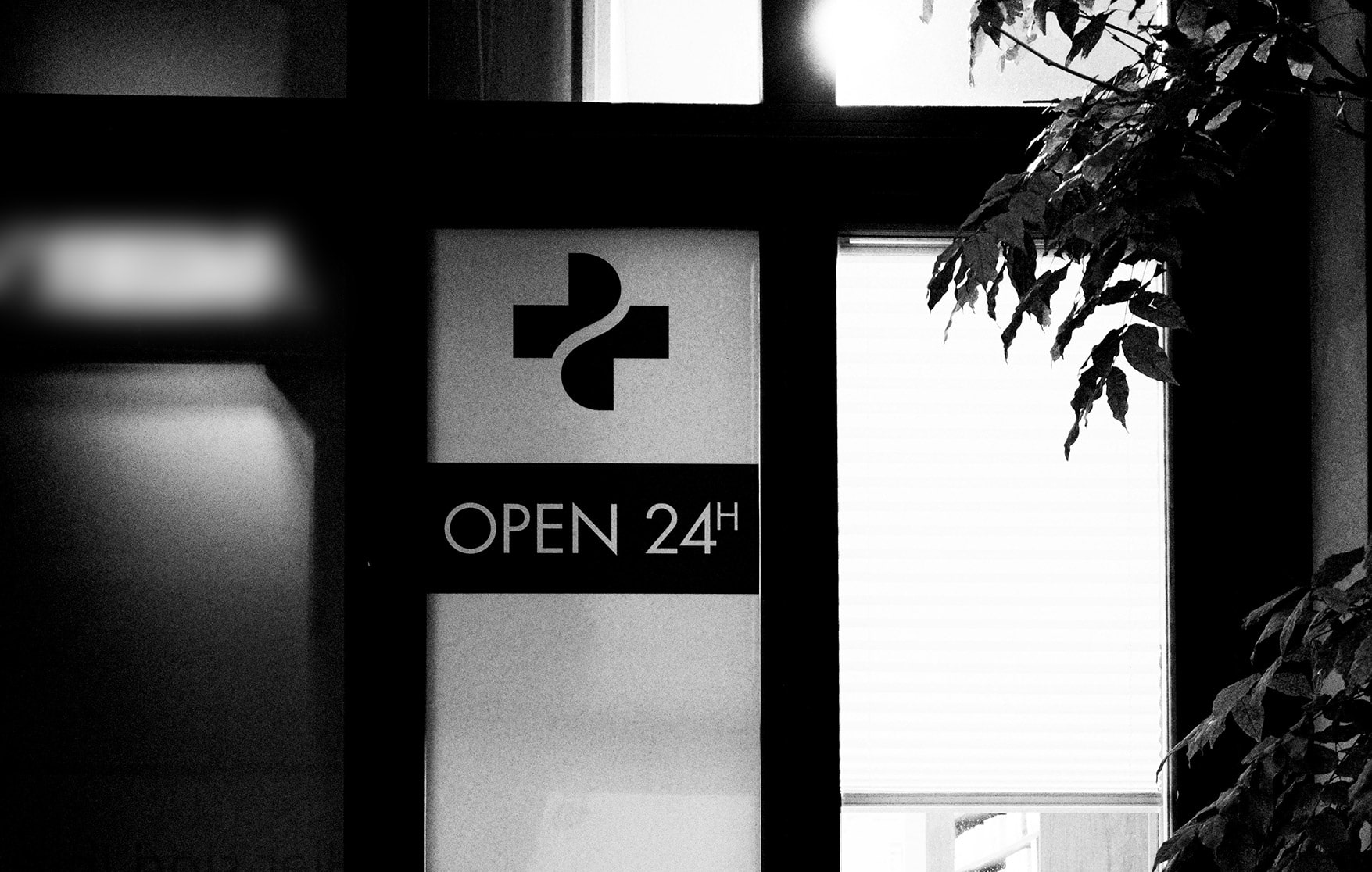
Language
Coverage
Type of Care
Coverage
Language
Type of Care
Loading dental practices...
Types of 24-Hour Emergency Dentist Services
Severe Toothache
Fast relief for throbbing or constant pain.
Broken Teeth
Quick fixes to stabilize and protect damaged teeth.
Abscess Treatment
Antibiotics, drainage, or extraction to stop the spreading infection.
Lost Filling or Crown
Temporary or permanent solutions to keep you comfortable.
Knocked-Out Tooth
Urgent care to save and reimplant a tooth, if you act quickly.
Emergency Tooth Extraction
Removing unsalvageable teeth to stop pain and infection.
What to Expect During Your Emergency Visit
Examination
The dentist checks your symptoms and may take X-rays to find the cause.

Diagnosis
Clear explanation of what’s happening and your options, moving forward.

Treatment
Fillings, extraction, antibiotics, or pain control, all often on the same day.
Why You Shouldn’t Wait
When a tooth starts hurting, time isn’t on your side. What begins as a small problem can quickly turn serious: an infection can spread into your jaw, your face, or even your bloodstream. Getting help early keeps the pain under control, lowers the risk of complications, and can even save the tooth. Put it off, and the fix gets more complex, more expensive, and more likely to end in an extraction. Calling a 24-hour emergency dentist means you don’t have to suffer through long days or nights. The faster you act, the faster you’ll feel relief and protect your health.
Virtual Visits or In-Person Care: Which Is Right?
Some issues can be handled with a quick virtual consultation. A dentist can review your symptoms, recommend pain relief, and even prescribe antibiotics, all without you leaving your house. This gives you immediate guidance and reassurance. However, if your problem requires hands-on care—such as a broken tooth, abscess drainage, or extraction—you’ll need to be seen in person. The best approach? Begin with a call so that the dentist can schedule an urgent, in-person appointment for you.

Emergency or Not? Here’s How to Tell
Not every dental issue means drop everything and run. But some do.
Call a dentist now if you have
- Sharp, ongoing pain
- Swelling, especially in your jaw or face
- Bleeding that won’t stop
- A knocked-out tooth… it can be saved!
If you have a fever over 101°F that lasts for more than a day, signs of infection, or trouble breathing, please contact your primary care doctor.
It can probably wait a day, if you have
- A dull ache
- A chipped tooth with no pain
- A lost filling or crown that isn’t hurting
- Mild sensitivity
Still unsure? Better safe than sorry. One quick call will clear it up.
Insurance and Payment Options You Should Know
Most emergency dentists accept insurance plans, though what procedures are covered may vary, depending on the treatment you need. What if you don’t have insurance? Many offices offer cash discounts, sliding-scale fees, or financing plans you can spread out over time. Some also provide membership savings programs that reduce overall costs. To avoid a surprise bill, ask about costs and payment options when you call. Knowing your options helps you focus on getting better, rather than stressing over the cost.
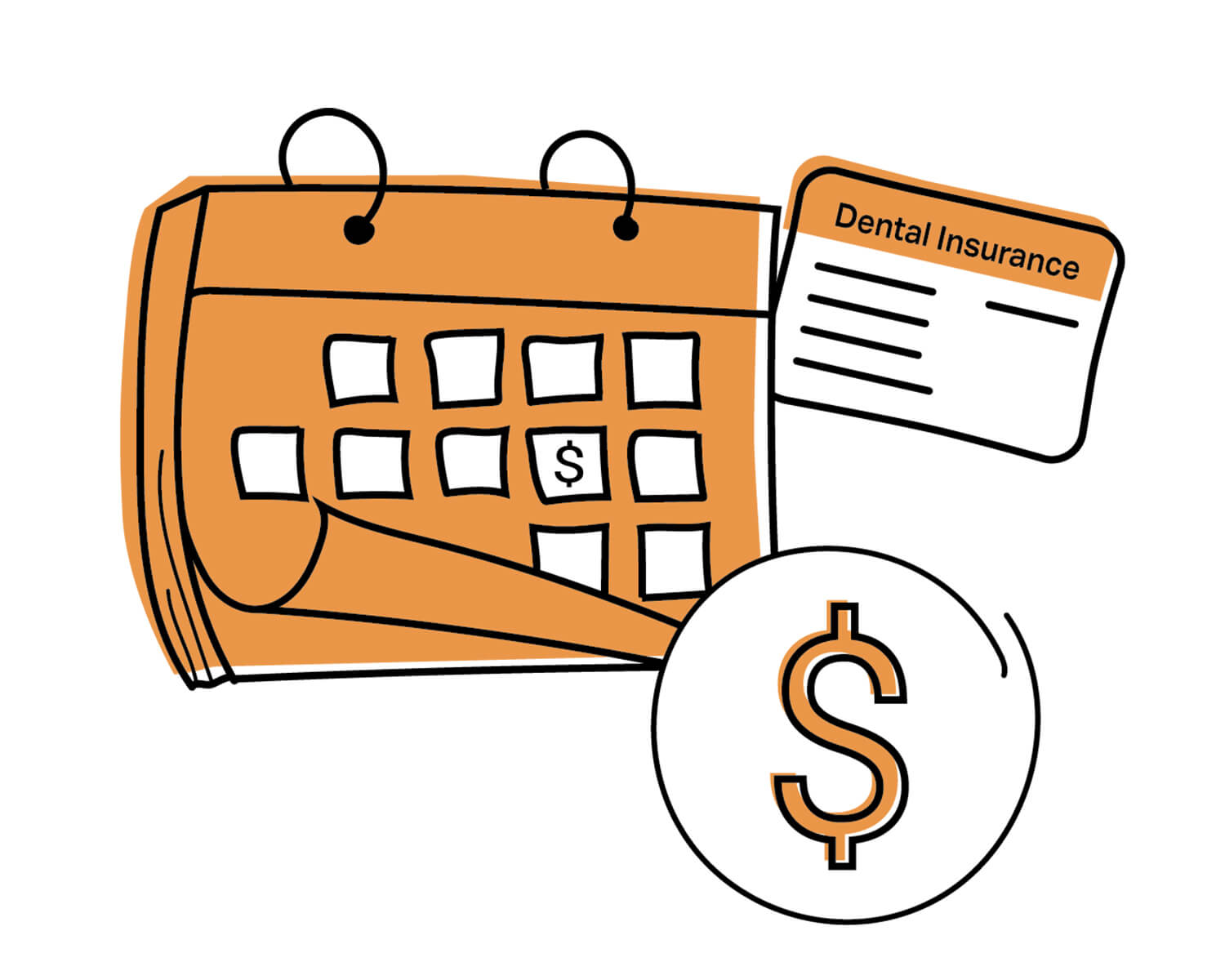
ER or Emergency Dentist: Where Should You Go? The Right Choice
Not sure whether to call a dentist or head to the ER? Here’s a rule of thumb: if you have severe swelling that affects breathing or swallowing, facial trauma, or fever and chills that suggest a spreading infection, go to the ER immediately. For most dental pain, broken teeth, or abscesses, an emergency dentist is the right choice. The safest bet is to call a 24-hour emergency dentist first. If your symptoms suggest something life-threatening, they’ll direct you to the ER without delay.
What to Do While Waiting for Your Appointment
There are simple steps you can take to ease pain while you wait. Rinse the area gently with warm salt water to clean the area. Use a cold compress on your cheek to reduce swelling. Take over-the-counter pain relievers as directed: ibuprofen and acetaminophen can work well, in alternating doses, if they’re safe for you. If a tooth gets knocked out, keep it moist in milk or saliva, and bring it with you. Avoid chewing on the sore side or drinking hot beverages, which can make pain worse.
Find a 24-Hour Emergency Dentist Near You
You don’t have to suffer, guess, or wait. Find an emergency dentist near you now and get the help you need.
Frequently Asked Questions
What qualifies as a dental emergency?
Severe pain, swelling, infection, knocked-out teeth, broken teeth, or lost fillings usually qualify as emergencies. If you’re unsure, call a 24-hour dentist right away.
How soon can I get seen after contacting the clinic?
Use our search tool to connect with emergency dentists who are open after hours, on weekends, or even for after-hours and weekend appointments. Just be sure to call the dentist’s office first to confirm availability and secure your appointment slot.
What should I bring or know when I arrive?
Bring your ID, insurance card if you have one, a list of medications, and any broken tooth pieces. Be ready to explain your symptoms.
Will insurance cover emergency dental services?
Most insurance plans cover emergency care, though coverage depends on your policy. Call the office ahead so they can check your benefits.
Do you offer payment plans or savings plans for uninsured patients?
Many emergency dentists offer cash discounts, financing, or membership savings programs so you can afford urgent care, even without insurance.
Can I get virtual advice before going in?
Yes. Teledentistry can provide quick guidance, pain relief tips, and occasionally prescribe medications. However, many emergencies still require in-person care to resolve the issue.
What if I’m experiencing swelling or difficulty breathing?
That is a medical emergency. Go to the ER or call 911 right away, as the infection may be life-threatening.
Is it better to go to the ER instead of a dentist for some emergencies?
Emergency rooms handle life-threatening symptoms like breathing problems or severe trauma. Dentists handle tooth-related emergencies. When in doubt, call a dentist first for guidance.
What aftercare will I need following an emergency procedure?
Follow your dentist’s instructions: typically, this includes eating soft foods, using salt-water rinses, and taking pain medication. Call back if your pain worsens or swelling returns.
Can restorative work (crowns, root canals) be done during same-day visits?
Sometimes. Many offices provide temporary relief first, then schedule restorative work for a follow-up visit once the pain and infection are under control.
Are walk-ins accepted, or do I need an appointment?
Same-day visits are typically available, but we recommend calling ahead to confirm. It saves time and ensures the dentist can see you quickly.
What can I do at home for relief until I’m seen?
Use a cold compress, rinse with salt water, and take over-the-counter pain relievers. Keep a knocked-out tooth moist in milk or saliva until your visit.
Related Information
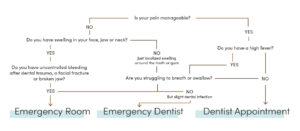
Should You Go to the ER for Tooth Pain? A Quick Guide
Whether you should go to the ER for tooth pain depends on the severity of your pain and what other symptoms you’re experiencing. Read on for help deciding how to find relief.
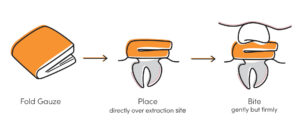
How to Stop Bleeding After Tooth Extraction: Easy Tips for Immediate Relief
After a tooth extraction, some bleeding at the site is normal and will usually slow down within 2-3 hours. Gentle oozing (think pink saliva) will often continue for the first 24 hours. Below you’ll find tips for helping to stop the bleeding, and how to tell the difference between normal recovery and signs that you should call your dentist.
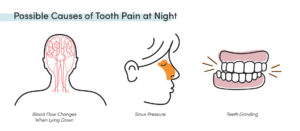
Why Does My Tooth Hurt at Night? 5 Possible Reasons and What You Can Do Right Now
Dental problems often feel more painful at night because lying down increases blood flow to the head, which heightens pressure and sensitivity. Other common causes include increased sinus pressure and unconscious jaw clenching and teeth grinding. While the long-term solution may require a visit to the dentist, there are measures you can take immediately to get some relief.
